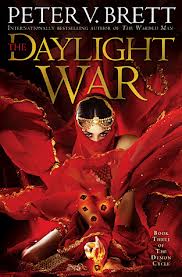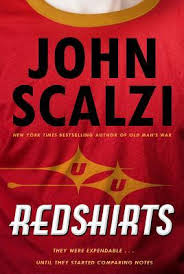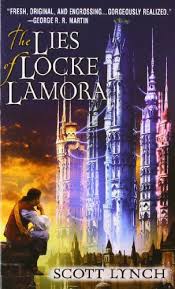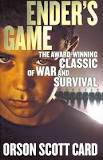The Long War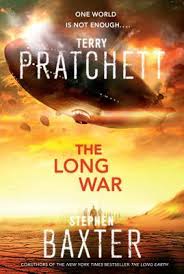
by: Terry Pratchett and Stephen Baxter
Harper/Collins New York, NY 2013
ISBN: 978-0-06-206777-7
I Have been a fan of Terry Pratchett‘s Discworld novels for a long time. That’s how I happened upon this one, looking for a “new release”. When I got it I realized that there was a previous novel, The Long Earth. I hoped that, like the Discworld novels, this book wasn’t dependent on the earlier one and dug in.
It wasn’t what I expected. This is clearly meant to be a series, and the timeline between books is sequential and the characters repeat. But, I was entirely engaged in the world as it was presented in this novel alone. There is a lot going on, and I’m sure it would be easier with the first book under my belt. However, I must admit that this book stands on its own. (But darn it now I’m going to have to go back and read the first one anyway.)
The Discworld is written as a fanciful tongue in cheek commentary. The books comment on our dearly held institutions like the Post Office (Going Postal), religions (Small Gods), and hot button issues (Equal Rites). Discworld doesn’t even take itself seriously (The Wee Free Men). The Long War is more classically science fiction. It still has social commentary themes (environmentalism and racism) as is common in the genre. It isn’t lacking internal humor, but it is not the comedy many Pratchett fans expect.
Apparently (and I’m sure this is the context of the first novel) an event occurred that allowed a significant portion of the planet’s population access to alternative Earths. Natural “steppers” could simply walk across that invisible boundary into the next Earth over, and then the next and so on. Additionally technology was developed to allow people who were not natural steppers access to these worlds as well. Even with the tech, there are some people who simply can not make the step.
At the start of this book, the “wild west” of the multiple Earths is being settled. There is enough time and distance from Datum Earth that those communities are no longer feeling “represented” by the Datum Earth government. Additionally, the party in power has no tolerance for the other hominoid species found in the Long Earth. It has a strong sense of colonialism, but a great fear of what those colonists represent. Datum America has confiscated all assets the colonists left behind and instituted a taxation program that is burdensome to the frontier lifestyle.
The racism (yes, those other hominoid species are really different races) is not limited to Datum Earth. A gross injustice, spread virally across the Long Earth equivalent of the internet, brings things to a head. The race involved, the Trolls, is invaluable to the settlers – at least those willing to work with them. The Trolls seem fascinated by human culture. They are better suited physically for heavy labor and have inherent knowledge of how to survive in the Long Earth. The incident is severe enough that the Trolls begin to disappear en masse from the Long Earth.
The war is the war of independence that pits the colonies and their interests against the interests of the central controlling government. The story is specifically about the United States, but references are made to other nations and their experiences with the Long Earth. The implication is that eventually there will be some sort of shifting on a global scale.
That shifting may come on the heels of an environmental disaster. There are signs on Datum Earth and the “low Earths” within a few steps that the Yellowstone caldera has become unstable. The suspicion is that global climate change may be responsible for this shift. No one is entirely sure what it means, or what to do about it but eventually the government recommends an evacuation. In this world evacuation can mean to another Earth as well as to other areas of Datum. An interesting dilemma for those who can not, or will not step across.
I really enjoyed the multi-verse premise. I was familiar with the potential for a Yellowstone “super volcano” going in, so the environmental sidebar was easy to follow. I do think that with this kind of expanded universe it’s not long before a series becomes dependent on the reader having familiarity with previous books. Pratchett and Baxter haven’t hit that point yet, and maybe they won’t. Still, since I’ll probably continue to follow this world, I have every intention of going back and getting “caught up.”


